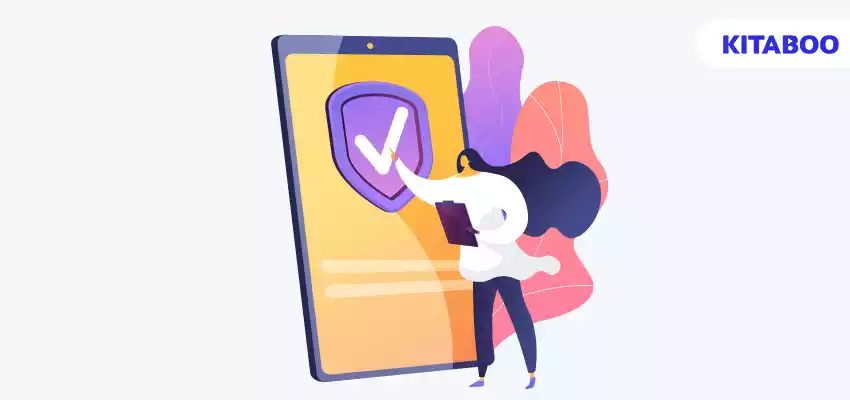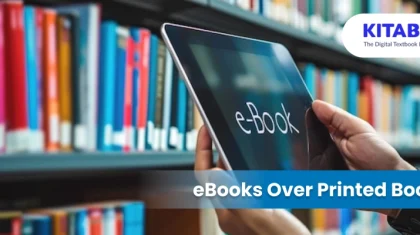
Share eBooks with Confidence: Mastering eBook DRM
Summarize this blog with your favorite AI:
eBook DRM – TL;DR
What is eBook DRM?
DRM protects digital content from unauthorized copying, sharing, and distribution using encryption and access controls.
It restricts device usage, printing, and sharing, ensuring only authorized users can access eBooks.
Why is DRM Important?
- Prevents piracy and unauthorized distribution.
- Protects sensitive and proprietary content.
- Controls content usage and distribution across devices.
- Enhances revenue by limiting unauthorized sharing.
How DRM Safeguards Content:
- Custom Access Control: Restricts who can access content and how.
- Authorization and Licensing: Requires users to obtain permission or licenses.
- Encryption: Secures content with decryption keys.
- Watermarking: Traces leaks and unauthorized distribution.
- Unique Codes: Binds eBooks to user accounts or devices.
- DRM Variations: Adapts to different platforms and file types.
Pitfalls of Traditional DRM:
- Limited file type support.
- Inflexible frameworks.
- Poor user experience.
Solution with KITABOO:
- Offers robust DRM, branding, analytics, and cross-platform compatibility.
- Enhances user experience while ensuring content security.
Conclusion:
- DRM is essential to protect eBooks and maintain control over digital distribution.
- KITABOO provides an effective, user-friendly DRM solution for confident eBook sharing.
In today’s rapidly evolving digital landscape, safeguarding your creative works has never been more critical. The internet offers incredible opportunities to reach a global audience. However, it also opens the door to potential theft and piracy of your valuable content.
With the surge in online publishing, eBook DRM has emerged as a crucial ally for authors, publishers, and content creators. Just like you secure your home with a sturdy lock, eBook DRM shields your literary masterpieces from illicit copying and sharing.
However, not all DRM systems are created equal, and many fall short, leaving creators vulnerable to copyright breaches. To navigate this successfully, it’s essential to grasp the nuances of eBook DRM.
Let’s dive in and discover how eBook DRM can help protect your literary legacy in the digital sphere.
Table of Contents:
II. Why is eBook DRM Protection Important?
III. How does eBook DRM Safeguard Your Content?
- Customizing Accessibility
- Authorization and Licensing
- Encryption: The Shield of Protection
- Detecting Unauthorized Distribution
- Unique Codes
- DRM Variations
What is an eBook DRM?
eBook DRM, or Digital Rights Management, refers to a set of technologies and protocols designed to protect digital content. It aims to prevent unauthorized copying, sharing, and distribution.
Essentially, eBook DRM acts as a security measure. It ensures that only those who have purchased or acquired legitimate access to the eBook can use it as intended.
At its core, eBook DRM employs encryption and access controls to restrict how an eBook can be used. These controls may include limitations on copying text, printing pages, or sharing the eBook with others.
DRM systems also typically tie the eBook to a specific device or user account, preventing unauthorized access on unapproved devices. But here’s the catch: not all eBook formats come with built-in DRM.
That’s where platforms like KITABOO come in handy. With KITABOO, your eBooks are encrypted and DRM-protected, ensuring they’re only accessible with unique access codes. So, if you want to keep your eBooks safe and secure, consider publishing with KITABOO.
Why is eBook DRM Protection Important?
Protecting your eBooks with DRM is crucial for safeguarding your hard work and livelihood. Without DRM, your eBooks are vulnerable to piracy and unauthorized sharing, potentially depriving you of income and recognition.
Here’s why eBook DRM protection is essential:
- Preventing Piracy: Authors invest significant time and resources into creating their eBooks. DRM ensures that your eBooks are not stolen or shared without permission, safeguarding your financial interests.
- Securing Sensitive Content: eBooks often contain proprietary knowledge, sensitive information, or copyrighted material. DRM helps prevent unauthorized access, copying, or distribution of such content, protecting your intellectual property rights.
- Controlling Distribution: DRM allows you to control how your eBooks are distributed. Once purchased, eBooks are tied to the buyer, limiting sharing options and preventing unauthorized distribution.
- Device Limitations: DRM restricts the number of devices on which eBooks can be downloaded. Most publishers impose a limit of around six devices per eBook, ensuring controlled distribution.
- Content Usage Restrictions: DRM restricts the copy-paste feature, minimizing the risk of text extraction and unauthorized use of your content.
How does eBook DRM Safeguard Your Content?
eBook DRM is a multifaceted defense mechanism, incorporating several layers of protection. Here’s how DRM ensures that your creative work remains secure and your rights are preserved in the digital age:
Customizing Accessibility
DRM empowers content creators to customize access control policies for their eBooks. These policies dictate who can access the content, with what permissions, and under what circumstances.
Features like user authentication, password protection and restricted printing/viewing options ensure that content is accessed only by authorized users and under specified conditions.
Authorization and Licensing
To access protected content, users must obtain permission or a license from the content distributor or owner. This authorization process is facilitated through various methods, such as digital certificates, license keys, or online authentication. It acts as a gatekeeper, allowing only authorized individuals to unlock the eBook.
Encryption: The Shield of Protection
EBook DRM relies on encryption to safeguard your content. Powerful encryption algorithms encode your eBook, making it unreadable without the correct decryption key.
This encryption forms an impenetrable barrier, ensuring that only authorized individuals can access the content.
Detecting Unauthorized Distribution
Many DRM systems employ watermarking techniques to deter unauthorized distribution of eBooks. These watermarks, either visible or invisible, contain information such as the transaction details or the user’s identity.
In the event of unauthorized sharing, watermarks help trace the source of the leak. This helps prevent further misuse, acting as a silent sentinel guarding your content.
Unique Codes
Each DRM system comes with a unique code that acts as a virtual lock on your eBook. This code ensures that your eBook remains tethered to user accounts or authorized devices, preventing piracy and unrestricted sharing.
For example, Apple’s FairPlay DRM system restricts eBooks purchased from the iBookstore to compatible devices, ensuring control over distribution.
DRM Variations
DRM solutions vary in their implementation and protection mechanisms. For instance, Kindle and similar platforms wrap eBooks in DRM code or embed code within the eBook package itself.
Adobe PDF protection encrypts eBooks with a unique encryption key, accessible only with the correct password. Additionally, DRM systems often restrict actions like printing, copying, and converting eBooks to prevent unauthorized use.
The Pitfalls of Traditional eBook DRM Solutions
Traditional DRM tools pose several challenges for authors and publishers alike:
- File Type Limitations: Some DRM solutions are limited to specific file types, such as Office and PDF files, restricting their applicability across different formats.
- Inflexible Frameworks: Many traditional DRM tools require a client at all times, complicating implementation and hindering collaboration efforts.
- User Experience Impact: Overly restrictive DRM implementations can negatively impact the user experience, leading to frustration among readers and hindering eBook accessibility.
Addressing these challenges requires a balanced approach that prioritizes both security and user experience. Publishers should seek DRM solutions, like KITABOO, that offer robust security without sacrificing usability.
KITABOO offers numerous benefits for publishers:
- Comprehensive Features: KITABOO provides an extensive array of features for publishing and securely distributing digital content.
- Custom Branded App: Publishers can establish their branded app through KITABOO, bolstering brand visibility and providing users with a cohesive reading experience.
- Cross-Platform Compatibility: With KITABOO, you can distribute content across various devices and platforms, ensuring accessibility for a wide audience.
- Usage Metrics: KITABOO offers access to detailed data analytics and usage metrics, empowering publishers to gain insights into how their content is being utilized.
- Web Store Integration: Publishers can seamlessly integrate KITABOO with web stores to license eBooks to educational institutions or distribute content directly to end-users.
By leveraging KITABOO’s user-friendly DRM solutions, publishers can protect their content while ensuring a positive reading experience for their audience.
Wrapping Up!
In conclusion, safeguarding your eBooks with DRM is essential for protecting your intellectual property. With the rise of digital piracy and unauthorized sharing, ensuring the integrity of your content is paramount.
Consider leveraging DRM solutions like KITABOO, which offer robust protection built directly into the publishing platform. By utilizing KITABOO’s DRM features, you can share your eBooks with confidence, knowing that your content is secure and protected against piracy.
Take the next step in securing your digital content by choosing KITABOO as your trusted publishing platform. Connect with us now!
Discover how a mobile-first training platform can help your organization.
KITABOO is a cloud-based platform to create, deliver & track mobile-first interactive training content.



